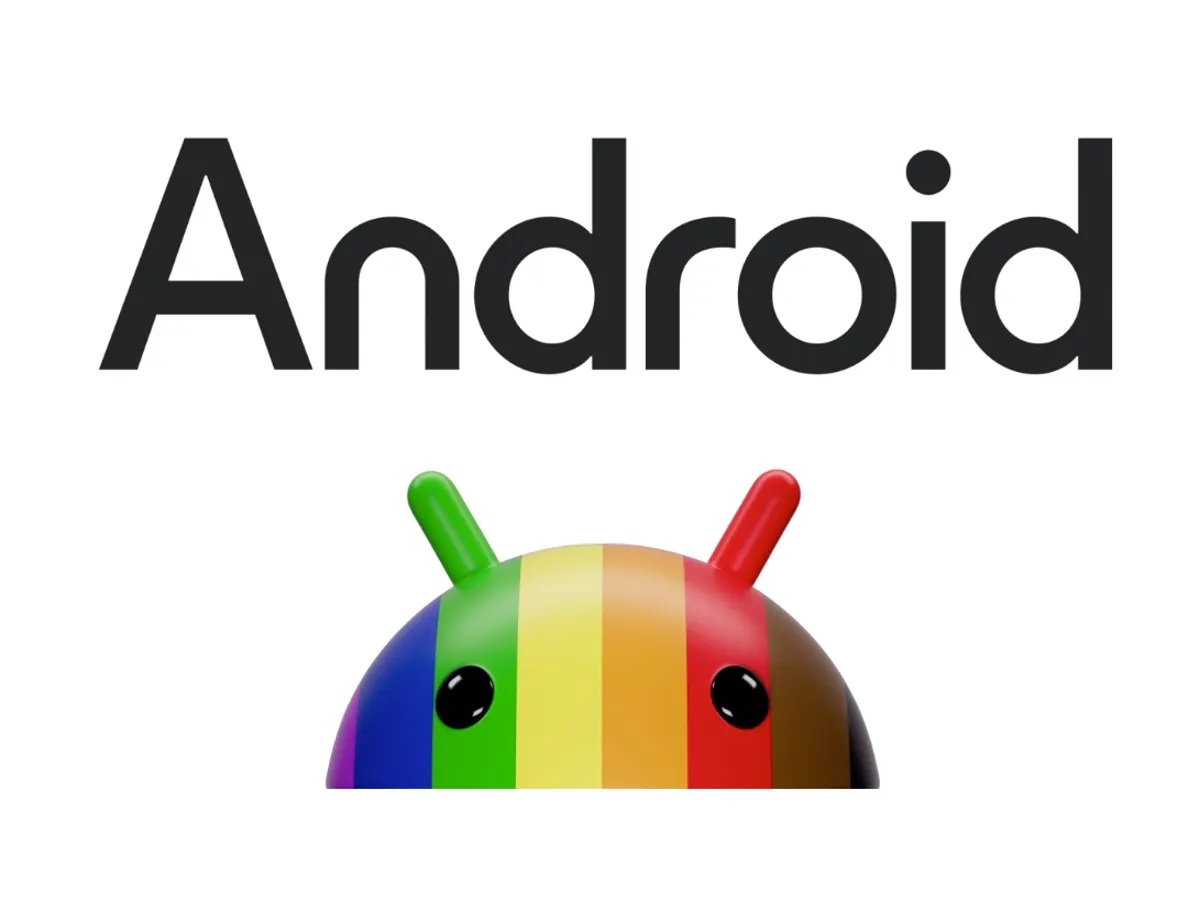
Android, the ubiquitous operating system, has revolutionized the way we interact with technology. From smartphones and tablets to smartwatches and TVs, Android has permeated various facets of our daily lives. In this article, we'll explore 20 intriguing facts about Android that shed light on its evolution, impact, and future prospects.
Let's delve into the captivating world of Android, uncovering its origins, global dominance, and the innovative features that have captivated billions of users worldwide. Discover the fascinating journey of Android, from its humble beginnings to its current status as a powerhouse in the tech industry. Join us as we unravel the mysteries and marvels of this iconic operating system, unearthing the stories behind its inception, growth, and enduring influence. Get ready to embark on an exhilarating exploration of Android's past, present, and future, as we unveil 20 enthralling facts that showcase the unparalleled allure and significance of this groundbreaking platform.
Key Takeaways:
- Android, developed by Google, powers over 70% of mobile devices globally, offering customizable experiences and a vast app library, making it a dominant force in the mobile industry.
- With its playful dessert-themed version names, seamless cloud integration, and commitment to accessibility and security, Android continues to drive innovation and shape the future of mobile technology.
Android is a mobile operating system developed by Google.
Android, a powerful and versatile mobile operating system, was developed by Google to provide a user-friendly platform for smartphones and tablets. With its open-source nature, Android has become the foundation for a wide range of devices, from budget-friendly options to high-end flagship smartphones.
The first commercial Android device was the HTC Dream.
In 2008, the HTC Dream, also known as the T-Mobile G1, marked the debut of the Android operating system in the commercial market. This pioneering device introduced users to the innovative features and customizable interface that would define the Android experience.
Android is based on the Linux kernel.
The foundation of Android's architecture lies in the Linux kernel, which serves as the secure and robust backbone for the operating system. This structure enables Android to support a vast array of applications and functionalities while maintaining stability and security.
The Google Play Store offers over 2.8 million apps for Android users.
With an extensive library of applications ranging from productivity tools to entertainment options, the Google Play Store provides Android users with a diverse and dynamic ecosystem. This vast selection caters to the diverse needs and preferences of Android users worldwide.
Android has a global market share of over 70%.
As a dominant force in the mobile industry, Android has secured a substantial market share, making it the leading mobile operating system across the globe. Its widespread adoption reflects the appeal and accessibility of the platform to users from diverse backgrounds.
Android versions are named after desserts and sweets.
Each major release of the Android operating system is associated with a sweet or dessert-themed name, such as Cupcake, Donut, KitKat, and Oreo. This playful tradition adds a touch of whimsy to the platform's evolution and has become a much-anticipated aspect of each new Android version release.
Android supports customizability and personalization.
One of Android's defining features is its flexibility, allowing users to customize their devices with widgets, themes, and various launchers. This level of personalization empowers users to tailor their Android experience to suit their individual preferences and style.
The Android mascot is a green robot known as "Bugdroid."
The endearing Android mascot, affectionately named "Bugdroid," has become an iconic symbol representing the platform's playful and innovative spirit. This charming character is synonymous with the Android brand and is widely recognized by enthusiasts and users alike.
Android powers a diverse range of devices beyond smartphones and tablets.
In addition to smartphones and tablets, Android serves as the operating system for a wide spectrum of devices, including smartwatches, smart TVs, and even automotive infotainment systems. This adaptability showcases the versatility and expansive reach of the Android platform.
The Android One program emphasizes a pure Android experience.
The Android One initiative focuses on delivering a streamlined and consistent Android experience across a selection of devices, prioritizing simplicity, security, and timely software updates. This program aims to provide users with a pure Android experience that remains true to Google's vision for the platform.
Android is integrated with Google's suite of services.
Seamless integration with Google's suite of services, including Gmail, Google Maps, and Google Assistant, enhances the Android user experience by offering convenient access to essential tools and features. This cohesive ecosystem contributes to the interconnected nature of the Android platform.
Android's accessibility features promote inclusivity.
Android incorporates a range of accessibility features designed to accommodate diverse user needs, such as screen readers, magnification gestures, and voice commands. By prioritizing inclusivity, Android strives to ensure that its technology is accessible to users with varying abilities.
Android's security features include built-in malware protection.
With built-in security measures and ongoing updates, Android prioritizes the protection of user data and the integrity of the platform. This proactive approach includes features such as Google Play Protect, which helps safeguard devices from potentially harmful applications.
Android users can benefit from seamless cloud integration.
The integration of cloud services within the Android ecosystem enables users to effortlessly synchronize their data, photos, and documents across devices, fostering a cohesive and interconnected digital experience. This seamless integration contributes to the convenience and accessibility of Android devices.
Android Instant Apps allow users to access content without installation.
Android Instant Apps provide users with the ability to access specific content and functionality from apps without the need for installation. This streamlined approach offers convenience and efficiency, allowing users to engage with app content seamlessly.
Android's multi-user support facilitates shared device usage.
The multi-user support feature in Android enables multiple users to share a single device while maintaining personalized settings and preferences. This functionality is particularly beneficial for families and organizations seeking to optimize device utilization.
Android's Project Treble enhances system updates.
Project Treble, a major architectural change in the Android operating system, aims to expedite the delivery of system updates by separating the vendor implementation from the core Android framework. This initiative streamlines the update process, resulting in more efficient and timely software releases.
Android Enterprise provides comprehensive mobility solutions for businesses.
Android Enterprise offers a suite of mobility solutions tailored for businesses, providing secure and flexible management of devices, applications, and data. This initiative empowers organizations to leverage Android's capabilities while maintaining robust security and control.
Android's ARCore platform enables augmented reality experiences.
ARCore, Google's augmented reality platform for Android, empowers developers to create immersive AR experiences that seamlessly integrate with the physical world. This technology opens up innovative possibilities for interactive and engaging applications across various industries.
Android's continuous innovation drives technological advancements.
The evolution of Android reflects a commitment to ongoing innovation, with each new iteration introducing advancements in performance, features, and user experiences. This dedication to progress underscores Android's pivotal role in shaping the future of mobile technology.
Android, a revolutionary mobile operating system developed by Google, has transformed the digital landscape with its unparalleled versatility and expansive capabilities. From its inception with the HTC Dream to its widespread global adoption, Android has redefined the way users engage with mobile devices. With a diverse array of devices powered by Android, seamless integration with Google's services, and a commitment to accessibility and security, the platform continues to set new standards for mobile technology. As Android continues to evolve through initiatives such as Android One, Project Treble, and ARCore, its impact on the industry remains profound, driving technological innovation and shaping the future of mobile experiences. The 20 Facts About Android exemplify the platform's remarkable journey and enduring influence in the realm of mobile operating systems.
Conclusion
In conclusion, Android has revolutionized the world of technology, offering a versatile and user-friendly platform that continues to shape our digital experiences. From its humble beginnings to its current dominance in the mobile operating system market, Android has consistently evolved to meet the changing needs of users and developers. With its open-source nature, extensive customization options, and seamless integration with Google services, Android has become a powerhouse in the tech industry. As we look to the future, it's clear that Android will remain a driving force in innovation, connecting people and empowering them with cutting-edge capabilities.
FAQs
What makes Android different from other operating systems?
Android stands out for its open-source nature, allowing for extensive customization and flexibility. It also boasts seamless integration with Google services, providing a cohesive digital ecosystem for users.
How does Android contribute to technological innovation?
Android serves as a catalyst for innovation by offering a platform that empowers developers to create diverse and impactful applications, driving advancements in mobile technology and user experiences.
Hungry for more Android knowledge? Satisfy your curiosity with our budget-friendly Android phone recommendations, perfect for savvy shoppers. Jetpack Compose facts await, shedding light on this powerful UI toolkit's potential. Philip K. Dick's "Do Androids Dream of Electric Sheep?" holds captivating secrets you won't want to miss. Explore these enticing topics and expand your Android expertise today!
Was this page helpful?
Our commitment to delivering trustworthy and engaging content is at the heart of what we do. Each fact on our site is contributed by real users like you, bringing a wealth of diverse insights and information. To ensure the highest standards of accuracy and reliability, our dedicated editors meticulously review each submission. This process guarantees that the facts we share are not only fascinating but also credible. Trust in our commitment to quality and authenticity as you explore and learn with us.


